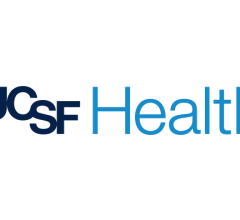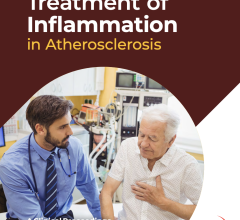
An analysis of nearly 8,000 STEMI patients over 20 years found the majority of STEMI occur in individuals without prior cardiovascular disease, and this prevalence is unchanged over time. Image courtesy: Getty Images
|
April 6, 2024 — The Minneapolis Heart Institute Foundation (MHIF) is presenting leading research focused on trends in ST-elevation myocardial infarction (STEMI), the most severe form of a heart attack, at the American College of Cardiology ACC Annual Scientific Session, ACC.24, being held April 6-8 in Atltanta, GA. In an analysis of nearly 8,000 STEMI patients over 20 years, the study found that the majority of STEMI occur in individuals without prior cardiovascular disease, and this prevalence is unchanged over time. Additionally, the study found that the risk factor profiles of patients presenting with STEMI is largely unchanged over time and the use of preventive medications has remained low. The data is being presented as part of the moderated poster 1254-220, “Trends in Cardiovascular Risk Factors and Use of Preventive Cardiovascular Medications in Patients Presenting with ST-Elevation Myocardial Infarction.” Key results from the research study, as reported by MHIF, include: - 70% of STEMI still occur in people without known CVD - Hyperlipidemia (~60% of STEMI patients) and hypertension (~60% of STEMI patients) remain the dominant CVD risk factors in STEMI - Average age at STEMI remains relatively young (early 60’s) - Use of preventive medications remains infrequent with the majority of individuals not on cholesterol medications, blood pressure medications, or aspirin prior to STEMI “While we know that the rate of STEMI has been declining in the US for decades, it was somewhat surprising to see that those presenting with STEMI look very similar to what we saw 20 years ago.” said Michael Miedema, MD, MPH, director of the Nolan Family Center for Cardiovascular Health at MHIF and senior author of the research. He added, “I think most people think of obesity and being out of shape as the primary cause of heart attacks, but we clearly have shown that high cholesterol and blood pressure, which are often heavily influenced by genetics, are the primary risk factors.” “We found that the majority of STEMI’s continue to occur in the absence of preventive medications, not despite taking them. We have a lot of patients who are hesitant to start a cholesterol or blood pressure medication, but it can be the difference between having or not having a big heart attack.” stated lead author Felipe Martignoni, who is completing a fellowship in cardiovascular prevention at the Nolan Family Center for Cardiovascular Health. STEMI is a severe manifestation of potentially preventable cardiovascular disease (CVD). In addition, common treatments including cholesterol medications, blood pressure medications, and antiplatelet agents have been shown to reduce the risk for cardiovascular events, such as STEMI. This research assessed the prevalence of CVD risk factors and the use of preventative CVD medications over the past 20+ years in a large Midwest STEMI system. Data included in the study were from 2003 through 2022 in 7,854 first-time STEMI patients. The Nolan Family Center for Cardiovascular Health, under the leadership of Dr. Miedema, is dedicated to cardiovascular prevention research, according to the MHIF statement on the study. It added that MHIF has a long history of groundbreaking research and education across a wide spectrum of prevention-related topics, including cardiovascular risk prediction, the impact of blood pressure and cholesterol guidelines, the optimal use of preventive therapies, and the impact of nutrition and other healthy lifestyle behaviors on cardiovascular health. More information: www.mhif.org |


 February 04, 2026
February 04, 2026 









